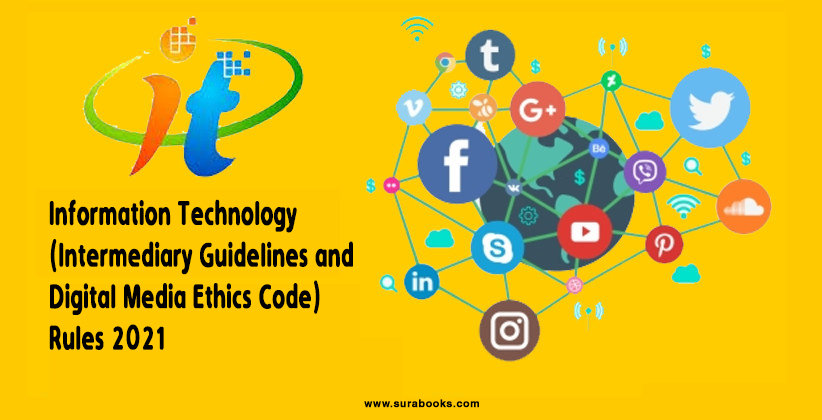The Information Technology (Intermediary Guidelines and Digital Media Ethics Code) Rules, 2021 were notified on February 25, 2021. The Rules have been notified under the Information Technology Act, 2000. The Act provides for the regulation of electronic transactions and cybercrime. The 2021 Rules replaced the Information Technology (Intermediaries Guidelines) Rules, 2011.
Two Categories of Social Media Intermediaries: To encourage innovations and enable growth of new social media intermediaries without subjecting smaller platforms to significant compliance requirement, the Rules make a distinction between social media intermediaries and significant social media intermediaries. This distinction is based on the number of users on the social media platform (more than 50 lakh users). The Rules require the significant social media intermediaries to follow certain additional due diligence.
Social media companies and redressal:
The government wants social media companies to have a mechanism to address complaints from users. It wants social media intermediaries to have the following:
v Chief Compliance Officer who shall be responsible for ensuring compliance with the Act and Rules.
v Nodal Contact Person for 24×7 coordination with law enforcement agencies.
v Resident Grievance Officer who shall perform the functions mentioned under Grievance Redressal Mechanism. All these officers have to be residents of India.
Tracking originator of a message:
The rules also call for tracking of the ‘first originator’ of a message and apply to a significant social media intermediary. It also wants the significant social media intermediary to have a physical contact address in India published on its website or mobile app or both. For players like WhatsApp, which are end-to-end encrypted, this could mean they will be forced to break encryption in India in order to comply.
OTT content platforms, digital media:
v The government has called for a grievance redressal system for OTT platforms and digital news media portals as well. The government is also asking OTT platforms and digital news media to self-regulate and wants a mechanism for addressing any grievances.
v While films have a censor board, OTT platforms will require to self-classify their movies and content based on age. The content will have to be classified based on age appropriateness. The government wants the OTT players to classify films based on 13+, 16+ and those for adults and clarified it is not bringing any kind of censorship to these platforms.
v For publishers of news on digital media, they will be “required to observe Norms of Journalistic Conduct of the Press Council of India and the Programme Code under the Cable Television Networks Regulation Act thereby providing a level playing field between the offline (Print, TV) and digital media,” according to the government.
v It also wants a three-level grievance redressal mechanism. This will include self-regulation by the publishers; self-regulation by the self-regulating bodies of the publishers and oversight mechanism.
v The government wants digital media to appoint a Grievance Redressal Officer based in India who shall be responsible for the redressal of grievances received by it. The officer shall take decision on every grievance received by it within 15 days.
v A monthly compliance report on the complaints received, the action taken and the redressal for such complaints will also have to be published by the intermediaries.
Further, the Ministry of Information and Broadcasting shall formulate an oversight mechanism. It shall publish a charter for self-regulating bodies, including Codes of Practices and establish an Inter-Departmental Committee for hearing grievances.
Google removed 59,350 posts in April 2021: Google removed about 59,350 pieces of content from its social media platforms in April last, following over 27,700 complaints received from individual users in India, according to the company’s maiden monthly transparency report.
The report follows the Information Technology (Intermediary Guidelines and Digital Media Ethics Code) Rules, 2021 that came into force on May 26. The rules require social media platforms with more than 50 lakh users in India to publish compliance report every month
mentioning the details of complaints received and action taken. The platforms also need to mention the number of specific communication links or parts of information they have removed or disabled access to, following proactive monitoring conducted by using automated tools.


